Europe
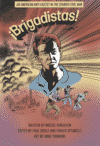
In this exhilarating graphic novel about the Spanish Civil War, three American friends set off from Brooklyn to join in the fight—determined to make Spain “the tomb of fascism” for the sake of us all. Together they defy the U.S. government and join the legendary Abraham Lincoln Brigade, throw themselves into battle, and conduct sabotage missions behind enemy lines. As Spain is shattered by the savagery of combat during the Spanish Civil War (1936-1939), readers see the darkening clouds of the World War to come. | more…
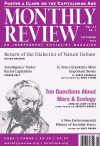
Our current geological time period, characterized by drastic planetary shifts due to anthropogenic climate change, is popularly known as the Anthropocene Epoch. Recent proposals for naming the first age of this epoch highlight capitalism’s central role in the ongoing climate crisis. | more…

Recent scholarship suggests that the widespread perception of Soviet states as uniquely ecologically disastrous is, at best, exaggerated, and that these environmental legacies must be re-examined. | more…
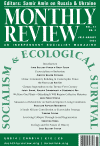
Between 1949 and 1980, over a hundred articles in Monthly Review dealt with the Soviet Union directly, with many more addressing it indirectly. But, after 1993, treatments of post-Soviet Russia in the magazine largely ceased. | more…

Through this dramatic history by Stefan Heym, we become intimate with the story of the maverick and internationalist Karl Radek, known as the editor of the newspaper of record throughout the Soviet era, Isvestia. Beginning as Lenin’s companion at the dawning of the October Revolution, Radek later became Stalin’s favorite intellectual – only to find himself entangled in the great purges of the late 1930s and scripting his own trial. In this, his last historical novel, Heym reveals Radek as a brilliant Bolshevik journalist and politician who found himself at every turn of the wheel of fate. | more…
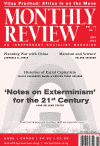
To get a firm grasp on the current situation in Ukraine, we must understand the central role that the United States and NATO have played in the conflict from the start, beginning in 2014 with the U.S.-engineered Maidan coup. | more…
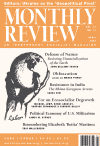
As we write these notes at the beginning of March 2022, the eight-year limited civil war in Ukraine has turned into a full-scale war. This represents a turning point in the New Cold War and a great human tragedy. By threatening global nuclear holocaust, these events are also now endangering the entire world. To understand the origins of the New Cold War and the onset of the current Russian entry into the Ukrainian civil war, it is necessary to go back to decisions associated with the creation of the New World Order made in Washington when the previous Cold War ended in 1991. | more…
Jeremy Corbyn, the former leader of the British Labour Party, was subjected to a concerted propaganda campaign by the British right-wing military-industrial establishment and amplified by mainstream media. | more…

Originally a storytelling project of JVP-NYC, A Land With A People: Palestinians and Jews Confront Zionism, is a collection of personal stories, history, poetry, and art which elevates rarely heard Palestinian and Jewish voices. | more…

By any standards, John Burdon Sanderson Haldane (1892–1964) was a fascinating man. An eminent scientist, prolific writer and speaker, fiery political activist, and all-round colorful character, he has been the subject of several full-length biographies and multiple biographical sketches. | more…

In 1970, the French left-wing filmmaker Chris Marker made a twenty-minute documentary about the French left-wing publisher François Maspero. Fleetingly, we catch a glimpse of two publications pinned side by side on one wall, seemingly granted special placement: a copy of The Black Panther newspaper and a Monthly Review. Hardly surprising is this prominence: Maspero’s relationship with Monthly Review was always fraternal, both interfaced with one another, shared lists. Together, they helped define what that New in the Left would mean. | more…
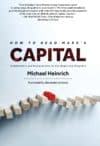
With the recent revival of Karl Marx’s theory, a general interest in reading Capital has also increased. But Capital—Marx’s foundational nineteenth-century work on political economy—is by no means considered an easily understood text. Central concepts, such as abstract labor, the value-form, or the fetishism of commodities, can seem opaque to us as first-time readers, and the prospect of comprehending Marx’s thought can be truly daunting. Until, that is, we pick up Michael Heinrich’s How to Read Marx’s Capital. | more…










